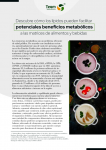Cargill stops hydrogenated oil production at Wichita plant
The move away from trans fats snowballed as evidence has mounted over the past decade showing that the fats raise levels of low-density lipoproteins – so-called ‘bad’ cholesterol – while also lowering ‘good’ cholesterol in the body, clogging arteries and causing heart disease. This led the Food and Drug Administration (FDA) to issue a regulation which came into effect in 2006 requiring manufacturers to list trans fatty acids on the nutrition panel of foods, providing further motivation for manufacturers to slice trans fats from their products.
President of Cargill’s dressings, sauces and oils division Mike Venker said in a statement: “The demand for hydrogenated oils has decreased significantly as a result of trans fat reduction in foods, therefore leaving the plant underutilized. We made every effort to keep the production at the plant, but ultimately could not achieve acceptable production efficiencies.”
Focusing on other oils
Cargill said that it will transfer the remaining production of hydrogenated oil to other facilities, while the Wichita plant will continue to produce non-hydrogenated salad oils and oil blends.
A spokesperson for the company told FoodNavigator-USA.com that demand for hydrogenated products across the US has declined by about 75 percent over the past five years and added that stopping production in Wichita has come about as a result of multiple pressures that have cut demand for the oil.
Trans fat bans that have been instigated in places like New York City, Philadelphia and the state of California refer to artificial trans fats, but there are also naturally occurring sources of trans fat. It makes up two to five percent of total fat content in dairy products and beef, for example.
Trans fat in the form of partially hydrogenated oil is most common in baked and fried foods, in which it can count for up to 45 percent of total fat content. It is cheaper to produce than healthier oils like canola or olive oil, provides food manufacturers with greater processing stability and gives foods a longer shelf life. Therefore, commercially produced shortenings in the US have traditionally contained high levels of hydrogenated fats.
Denmark was the first country to set an upper limit on trans fats as a percentage of total fat content in a food item – and set it at two percent in 2003.











